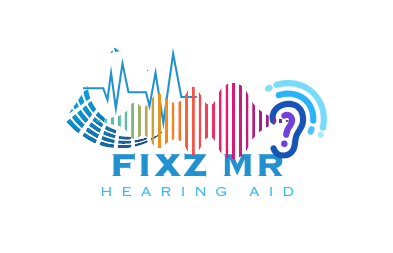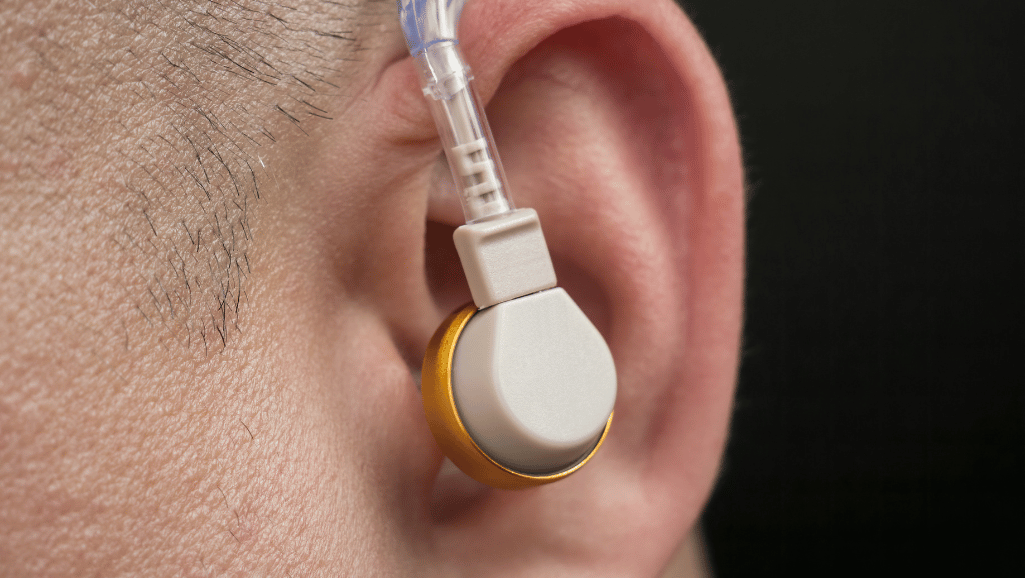Otology treatments have become a beacon of hope for those with ear disorders. Today, we see big steps forward in treating hearing loss. Otologists work closely with patients, using special treatments for ear conditions.
The Mayo Clinic is a leader in cochlear implants, doing over 150 each year. This shows its top-notch status in the US for this life-changing surgery. They also focus on finding and treating hearing loss early, which is crucial.
Columbia Otolaryngology is also a key player in ear health research. Otologists there focus on the ear’s complex anatomy. They treat hearing, balance, and skull base disorders with great skill. They tackle a wide range of ear issues, from acoustic neuroma to facial nerve disorders.
Key Takeaways
- Mayo Clinic’s expertise in cochlear implants shows the best in hearing restoration.
- Early detection and treatment are key for nerve hearing loss found at birth.
- Mayo Clinic’s acoustic neuroma assessments are a global standard for care and research.
- Columbia Otolaryngology is pushing the boundaries in ear disorders treatment with new research.
- New surgical methods, like endoscopic ear surgeries, are opening up new possibilities in otology.
- Otological care offers detailed solutions for ear health, balance issues, and hearing loss.
Comprehensive Otology and Neurotology Services at Mayo Clinic
Mayo Clinic is a leader in otolaryngology treatments, especially in otology and neurotology. It’s known for its excellence in neurology and ear, nose & throat specialties. This makes it a top choice for ear health solutions.
Incorporating Advanced Technology in Otology Treatments
Mayo Clinic in Rochester, Minnesota, uses the latest technology to improve diagnosis and treatment. They offer cochlear implant surgery that’s approved by the FDA for different hearing problems. This surgery and other new technologies give patients more treatment options and personalized care.
They use advanced technologies like IMRT, brain stereotactic radiosurgery, and proton therapy. These are key in treating complex ear and brain conditions, such as tumors.
Individualized Care Plans for Ear Health
At Mayo Clinic, each patient gets a treatment plan made by a team of experts in otolaryngology. This ensures all aspects of ear health and cochlear conditions are covered. The Comprehensive Skull Base Clinic offers care for many conditions, both benign and malignant.
After surgery, patients with cochlear implants get detailed programming and rehab. This is crucial for making cochlear implants work well.
Mayo Clinic Children’s Center is a top hospital for kids in Minnesota and nearby areas. It shows Mayo Clinic’s dedication to excellent care for young patients.
To learn more about innovative otolaryngology treatments at Mayo Clinic, check out their website. You can find info on cochlear implants and full care plans there.
| Service | Technology Used | Benefits |
|---|---|---|
| Cochlear Implant Surgery | Advanced Cochlear Technology | Customized to patient needs, improves hearing capability |
| Skull Base Surgery | Minimally invasive endoscopic and microsurgery | Reduces recovery time, targets complex pathologies |
| Radiation Therapy | IMRT, Radiosurgery, Proton Therapy | High precision, minimizes damage to healthy tissues |
Cutting-Edge Otology Treatments at Columbia Otolaryngology
Columbia Otolaryngology is changing the future of ear care with new treatments. They use the latest technology and medical advances. This helps them treat ear infections and balance disorders.
Minimally Invasive Endoscopic Ear Surgery
They use endoscopic ear surgery for less invasive ear surgeries. This method cuts down on recovery time and boosts results. It’s great for treating middle ear issues and cholesteatoma.
Revolutionizing Ear Disorder Treatment through Innovation
Columbia Otolaryngology is leading in ear disorder treatments with new ideas. They’re making big strides in treating ear infections, vertigo, and tinnitus. Their methods use the newest research and clinical practices.
By using technology in otology, Columbia Otolaryngology is improving patient care. They’re also deepening our understanding of hearing and balance disorders. Their focus on diagnosis and treatment shows their dedication to patient care.
The table below shows how new treatments at Columbia Otolaryngology are making a difference:
| Condition | Effective Treatments | Outcome |
|---|---|---|
| Single-Sided Deafness (SSD) | Cochlear Implants | Improves speech recognition, reduces tinnitus |
| Meniere’s Disease | OTO-104 and other pharmacological treatments | Reduces vertigo episodes and improves ear pressure sensations |
| Age-Related Hearing Loss (ARHL) | Hearing aids, tailored audiological care | Enhances speech discrimination, improves quality of life |
This table shows the innovative treatments for complex ear diseases. Columbia Otolaryngology is a leader in this field.
Innovative Cochlear Implants for Restoring Hearing
Cochlear implant surgery is a big hope for those with severe hearing loss. It’s a key way to help people hear better by fixing the auditory nerve. At places like UC Health, many have seen a big improvement in their lives after getting this surgery.
New technology has made cochlear implants better for different hearing needs. These implants open the door to clearer sounds, better understanding of speech, and feeling like they can hear the world again.
Cochlear implants change sound waves into electrical signals and send them directly to the auditory nerve. This surgery, which takes a few hours, has a high success rate. It shows how medical skill and care can help people with hearing loss.
| Feature | Benefits | Provider |
|---|---|---|
| Quality of Life Improvement | Over 90% improved post-surgery | UC Health |
| Experience in Cochlear Implantation | Over 30 years | Advanced Bionics |
| Remote Programming for CIs | Enhanced adjustment convenience | Marvel CI System |
| Specialized Devices for Children | First CI system designed for kids | Advanced Bionics |
| Wireless Audio Streaming | Improved mobile phone use | Cochlear Limited (Nucleus Systems) |
| Audiology Evaluations | Updated sound processing benefits | Cochlear Limited (Recent Studies) |
Places like UC Health and companies like Advanced Bionics and Cochlear Limited are leading in cochlear implant surgery. They show how important this surgery is for people with severe hearing loss. New advancements aim to make hearing aids better and more tailored to each patient’s needs worldwide.
Effective Management of Chronic Otitis Media
Chronic otitis media is a common ear issue that mainly affects kids from low-income homes. It’s important to know about the causes and how to manage this condition. This knowledge helps in finding the right treatment.
Multifaceted Approach to Ear Infection Treatment
Dealing with chronic otitis media requires a mix of treatments. Doctors often start with strong antibiotics and use pain relievers like ibuprofen or acetaminophen. About 90% of kids will get otitis media with effusion (OME) before they start school. So, acting fast and right is key.
There are more ways to help than just medicine. Ear infection remedies also include seeing an audiologist. They create specific plans to meet each patient’s needs.
Surgical Interventions for Recurrent Middle Ear Infections
For serious or ongoing infections, surgery might be needed. Procedures like tympanomastoidectomy can clear the infection and help improve hearing. A team of experts, including audiologists and otologists, works together to get the best results.
Knowing the main bacteria causing these infections helps in choosing the right treatment. This way, we can fight against antibiotic-resistant bacteria. Tympanomastoidectomy and other audiologist procedures greatly improve life for kids with chronic ear infections. They prevent the serious problems that can come with these infections.
With a mix of medical treatments and surgery, chronic otitis media can be well-managed. This reduces the health issues it causes for those affected.
Comprehensive Ear Canal Procedures and Treatments
Patients facing ear canal problems can find relief with various ear canal procedures. These methods tackle blockages, infections, and other issues. Ear wax removal procedures are key to avoid hearing loss and pain. They ensure the ear’s delicate parts stay safe.
Dealing with outer ear infection treatment is also vital, especially for swimmer’s ear. These infections cause pain and need special care. Doctors use medicines or surgery, based on how bad the infection is and its cause.
Good ear care means more than just treating symptoms. It aims for long-term solutions that boost ear health.
New techniques like endoscopic ear surgeries are now used more often. They are less invasive, which means patients heal faster and feel less pain. These advances show how ear care is always improving, offering the best and least painful treatments.
- Ear Wax Removal: Uses gentle suction and micro-tools for safe removal.
- Outer Ear Infection Treatment: Medicated drops and careful cleaning help fight infections.
- Structural Corrections: Surgery fixes narrow or abnormal ear canals.
| Treatment Type | Description | Common Conditions Addressed |
|---|---|---|
| Ear Wax Removal | Uses special tools for removal | Too much wax, Blockages |
| Outer Ear Infection Therapy | Medicated drops and professional cleaning | Otitis externa, Fungal infections |
| Structural Ear Surgery | Surgery to improve the ear canal | Narrow ear canals, Congenital malformations |
By combining clinical skill and new methods, ear care ensures patients get the best treatment for their needs. This approach not only helps now but also prevents future problems. It’s a proactive way to keep ears healthy.
State-of-the-Art Hearing Loss Therapy Options
Medical technology has made big strides, offering new hope for those with hearing loss. These advances bring better quality of life for people with different hearing problems.
Utilizing Advanced Audiologist Procedures in Treatment
Audiology has made huge leaps in treating hearing loss. Tools like air and bone conduction tests help find out how severe the loss is. For those with severe damage, cochlear implants can bring back the joy of hearing sounds.
Custom-Tailored Hearing Care Solutions
Getting hearing care that fits you is key to managing hearing loss well. Clinics now offer solutions that match your lifestyle and hearing needs. Devices like Open fit and CIC hearing aids give you the sound quality you want.
There are also new options like Earlens and OTC hearing devices for mild to moderate loss. These make hearing more natural and satisfying.
New hearing solutions do more than just help you hear. They can also prevent cognitive decline and increase your life expectancy, as studies show. This means you can stay active in social life, boosting your mental health.
Veterans have special access to top-notch hearing care at the VA Maryland Health Care System. They can get hearing aids that connect to smartphones for better communication. No referral is needed, making it easy for them to get the care they need.
Looking into these advanced hearing options can change your life. It’s not just about hearing better. It’s about enjoying a world full of richer sounds and deeper connections.
Otology Treatments for Vertigo and Balance Disorders
Dealing with vertigo and balance issues needs a mix of new medical treatments and rehab plans. UCLA Health and Cleveland Clinic lead the way in finding solutions for these tough problems.
Vestibular Disorder Therapies for Enhanced Mobility
Vestibular disorder treatment, especially vestibular rehabilitation, aims to lessen motion sensitivity and boost mobility. UCLA Health uses special exercises to help patients stay stable and balanced. They often use canalith repositioning to stop dizziness by moving particles in the inner ear.
Balance Disorder Treatments Utilizing Cutting-Edge Techniques
For serious balance issues, treatments might move to surgery as a last choice. Cleveland Clinic handles many cases and uses surgery and therapy to fully treat balance problems.
Dealing with balance disorders means more than just physical therapy. Changing diets and lifestyles can also help. For example, eating less salt and using diuretics can ease Meniere’s disease symptoms.
| Treatment Option | Description | Benefits |
|---|---|---|
| Medication | Used to relieve dizziness and manage migraine-related symptoms. | Instant relief from acute symptoms |
| Dietary Adjustments | Specific changes such as a low-salt diet for Meniere’s disease. | Helps reduce long-term symptoms |
| Vestibular Rehabilitation | Tailored exercises to improve balance and reduce motion sensitivity | Enhances mobility and quality of life |
| Surgical Procedures | Rarely used, only for severe cases not responsive to other treatments. | Long-term resolution of symptoms |
| Psychological Therapy | Approaches to manage stress and anxiety, such as cognitive behavioral therapy | Improves coping mechanisms |
Medicines help with immediate pain, but managing balance disorders long-term needs more. It’s important to check on the medicines to avoid too many at once. Adding specific physical and mental therapies helps manage symptoms better.
Expertise in Tinnitus Management and Therapy
Dealing with the constant ringing in your ears, known as tinnitus, can be really tough. Luckily, there are special programs and therapies to help. These use tinnitus management to lessen the symptoms. Audiometric evaluations are key, checking how bad the tinnitus is to help plan treatment.
Experts know that tinnitus therapy needs a full approach. They use many techniques to lessen the effect on everyday life. Hearing loss, a common cause of tinnitus, gets special attention. Often, advanced behind-the-ear hearing aids help a lot by improving hearing and reducing tinnitus.
There are many ways to treat tinnitus, like white noise machines and tinnitus retraining therapy (TRT). These are backed by cognitive behavioral therapy (CBT). CBT helps patients deal with the sounds of tinnitus, making it less stressful.
| Treatment | Duration | Cost |
|---|---|---|
| Virtual Educational Session | 90-120 minutes | $200 |
| Tinnitus Retraining Therapy (TRT) | Varies | Depends on clinic |
| Cognitive Behavioral Therapy (CBT) | Varies | Typically covered by health insurance |
Making lifestyle changes is key to tinnitus treatment. This includes using hearing protection and managing stress, which can make tinnitus worse. Some people also find relief with things like acupuncture and supplements like Ginkgo biloba and melatonin.
For good tinnitus management, it’s important to work with experts like audiologists. They have the right training to help with tinnitus. They can give you an evaluation and a plan that fits your needs.
Pioneers in Otology Surgery and Reconstructive Procedures
The field of otology has changed a lot over time, especially in ear surgery and reconstructive ear surgery. New techniques and technology have made surgeries safer and more effective. Now, with laser technology, surgeries are done with great precision, making patients feel less pain and recover faster.
Reconstructive ear surgery helps with hearing loss, birth defects, and injuries from accidents. It makes the ear work better and look normal again. This can greatly improve how people feel about themselves.
Laser Technology in Otology Surgeries
Laser technology has changed ear surgeries for the better. It reduces bleeding, lowers infection risk, and shortens surgery time. This means surgeons can do complex surgeries like stapedotomy and tympanoplasty safely and effectively.
Rehabilitation Services Post Ear Surgery
Rehabilitation after ear surgery is key to getting better. Patients get help to improve their hearing and get back to their daily lives. These programs include hearing tests, training, and counseling to meet each patient’s needs.
Good aftercare is important to check on recovery and fix any issues quickly. This helps patients get the best results and makes them happier with their care.
In conclusion, otology has made big advances in surgery and aftercare. These new methods and technologies promise better results for patients having ear and reconstructive ear surgeries. They also offer strong support during recovery.
Conclusion
The work of leading otology specialists has built a strong base in clinical care, research, and education. The UCLA Neurotology Program is a prime example of this. It has been serving for over three decades and has earned top honors for its work.
This program has been recognized by the NIH and the State of California for its outstanding cochlear implant surgery. Its impact on patient care and scientific progress is huge.
UCLA’s research has led to new ways to treat hearing and balance issues. They’ve been working on conditions like Meniere’s disease and acoustic neuromas since 1961. Their labs offer top-notch testing for dizziness and hearing problems.
But, bringing new treatments to patients is a long and tough process. It takes about ten years, costs a lot, and many fail. This shows how hard it is to make new medical innovations work.
Creating new ear devices, like cochlear implants, needs a lot of careful testing. These devices are very important and must be safe and work well. That’s why they go through strict checks before they can be used.
Getting these devices approved takes a lot of work and money. Experts say working together is key to making new treatments a reality. This teamwork is important for making sure new treatments are safe and work as they should.
The hard work of top otology clinics, researchers, and experts is making a big difference. They are working to improve the lives of people with ear problems all over the world.
FAQ
What types of otology treatments are available for ear disorders?
How does Mayo Clinic incorporate advanced technology in otology treatments?
What is minimally invasive endoscopic ear surgery and where can I get it?
Can cochlear implants help with all types of hearing loss?
What does the management of chronic otitis media involve?
When are ear canal procedures necessary?
What are the latest advancements in hearing loss therapy?
How are vertigo and balance disorders treated?
What treatment options are available for managing tinnitus?
What innovative surgical options are available for ear reconstruction?
Why is it important to consider rehabilitation services post ear surgery?
Source Links
- Otology & Neurotology
- Balance problems – Care at Mayo Clinic – Mayo Clinic
- Collaborating to support individuals with hearing loss – Mayo Clinic
- Comprehensive Skull Base Clinic – Overview
- Anil K. Lalwani, MD
- Gavriel D. Kohlberg
- Dr. Justin Golub, MD, Otolaryngology-Head & Neck Surgery | New York, NY | WebMD
- Cochlear Implants – A Comprehensive Guide to Improved Hearing
- Rediscover the sounds you’ve been missing | Cochlear
- Otitis Media: Diagnosis and Treatment
- Approach Considerations, Antibiotic Drops, Aural Toilet
- Ear Surgery | Conditions & Treatments | UT Southwestern Medical Center
- Ear Surgeries and Procedures
- Clinical Research/Clinical Trials in Otology: Setting the Research Agenda for Development of an Intervention









